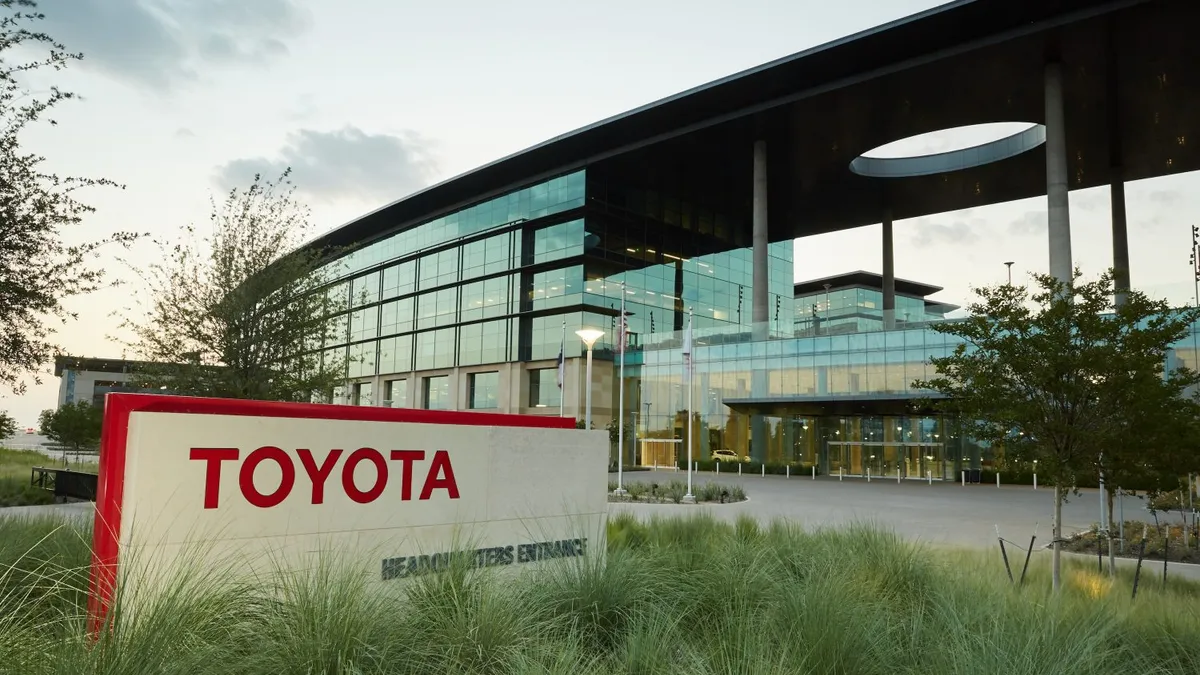This feature is the sixth in a series focused exclusively on issues impacting higher ed IT administrators, running through the beginning of the annual Educause conference, Oct. 25-28. For the series' previous entry, click here.
For most IT professionals, working in the private sector offers a much more financially lucrative career than a space like higher education. But colleges and universities bring a number of non-financial incentives. In our research for this series, we asked 9 higher ed CIOs to share their thoughts on why they work in higher ed. This is what they had to say.
It can depend a little bit on institution types, but I do think that — as funny as this may sound, given how many people talk about the fact that higher ed is very recalcitrant to change — in higher ed, at the IT level, we try a lot of things to sort of suss out what will work well for us and are willing to look at a new venture and a new way of thinking that may change the way we do business. That can be interesting for a certain group of IT people that want to sort of experiment and be on the edge. That certainly is a large one.
I think someone who is looking to work in IT but also feel that they’re part of something larger and really doing good, as it were, in the world, higher education is a great place to do that. You certainly have an opportunity to be part of a family at an institution and to help impact the lives of students.
I’ve only ever worked in research universities. For me, it’s all about the mission. It’s the mission of educating the next generation of people to help run this country and help keep the country a major economic competitor in the world.
A lot of the CIOs that I know in higher ed love their work. They like that real sense of mission you get at a university or a college, and they like that community. Here’s the interesting scenario: I see more industry-based CIOs wanting to come over to higher ed than I see higher ed CIOs ever talking about going into industry. So I think it’s a quality of life question. We’re certainly not making the kind of income a guy in industry’s going to make, but I think there’s something about the college environment — the collegiality, the community, the opportunity to do different stuff on a regular basis.
I think one of the reasons I’m able to hang onto some of my really talented staff is they get to work with some really interesting, wacky, brilliant people. As much as that sometimes gives us heartburn, what some of our really smart faculty want to do with these systems, it also kind of excites our guys and it keeps me interested. It keeps me curious. I always tell people, "Yeah, you could go work in industry, but you’re gonna do the same thing day in and out, and they’re gonna call you every hour of the night. Or you can come work in higher ed. We’ll pay you a little bit less, but you get to work with some geniuses, you get to hang out with some pretty interesting people, and we won’t call you every night — at least we’ll try not to."
I think it really comes down to a quality of life question. In my world, I couldn’t imagine not working at a university.
I’m a very straight shooter, so I’m gonna say it this way. If anybody gets anything from me, take this away: If your goal is to make a lot of money and that is your only criteria for a job, then I would steer you away from coming into higher education. Don’t do it.
I’ll say this because I have the vantage point of being in another industry and coming into higher ed — not a business area, but coming from the military. I might be rare, but I don’t think it’s unique. I spent 24-and-a-half years in the Air Force, and we worked under extremely stressful conditions at times — and that was because there were really grave consequences to our actions or inaction that could lead to lives being lost.
I loved the mission of supporting and defending our country. It was something that was bigger than me and bigger than my colleagues and bigger than our organization. That’s kind of a service-oriented mentality. That’s something that’s kind of just instilled in me. Because of that, I wanted to find something when I got out of the military that was similar to that, and higher education comes close. I think we do a very great public service by educating those who are going to be leading our country in the years ahead, and I think there is so much about higher ed that is positive because, with organizations like Educause and many others, the ability to collaborate with colleagues, the ability to grow and develop, the ability to work in an environment where you work kind of a steady hour, you get good holiday time off — I think there’s a lot of appealing things about higher ed IT. In some institutions, if you work there long enough, one of the perks you get is that your kids can go to the same institution and get their degree for little to free, in some cases.
But if money is the only object, higher education isn’t for you. If low stress, better work-life balance and contributing to the public good appeals to you, I would highly encourage IT professionals to look at higher education. You can also join a vibrant IT community across the country that is connected in so many ways. I’ve met so many dear friends and colleagues, and I wouldn’t be here today in the role that I have if it wasn’t for those friends and colleagues who helped me along the way. I couldn’t pick a better profession to be a part of.
Because we’re way more fun. The reason I do it — I came out of technology startups before I got into higher education, and I didn’t seek out higher education as my cause at the time, although I was looking for more meaningful work. But once I got here, it really did become my cause. I think that’s because the work that we do is positively impacting the next generation of folks. These are students we’re working with and we’re supporting and we’re building systems to support and we’re helping think about their educational experience. That’s really meaningful work.
In addition to that, we get to actually bring some of those students into our work environments and prepare them to be the next generation of our technology workforce, as well. It’s just such a richness of experience and purpose in what we do that’s beyond the sort of "protect the corporate firewall" type of experience. I think it’s incredibly rewarding.
I would say two things. No. 1, it’s an exciting, fulfilling mission. You can go to commencement and see those students and their families, and they’re literally laughing and crying with joy and excitement over what they’ve accomplished — and you’re part of that. You get to be part of that.
That’s not to say that there aren’t private sector companies that do great things. Of course there are. But it’s a mission that appeals to a lot of us.
The second thing I would say is that, in general, I think that universities tend to have an environment that is more family-friendly and more fun than most private industries. We work very hard, but not with the constant intensity of a lot of the private industries I’ve seen where people are just under this absolute constant pressure and stress to perform. Our people work hard. There are days and there are times when they put in those extra hours. But there’s also — my team’s kind of famous for lunch volleyball. They go out and play volleyball at lunch. If they’re having a good game and the weather’s nice and they play for an hour and a half, that’s not an issue. No one’s standing over them with a time clock, saying "Get back to work."
I think that’s typical of a lot of higher education institutions. It tends to be collegial and family-oriented to a greater extent than most private industry. That’s a generalization. I know there are terrible universities to work at and I know there are great private companies, but I do think, in my experience, that’s been a plus for working on campuses.
I think that’s an easy one. Higher education is so stimulating and it is so ever-changing. And it is fantastic being around a generation of generally younger people, students who have such energy and such intellectual curiosities. We’re constantly surrounded by people of great intelligence, people who are inquisitive and challenging. So much passion is shown in this industry compared to others. It’s a very, very exciting and dynamic industry.
It is truly inspiring working with adults who dedicate themselves to educating generally younger generations. And it is amazing to be surrounded by a younger generation so passionate about learning. It gives insight into the shape of the world to come.
There are several good reasons to consider working in higher education versus the private sector. More emphasis is usually given to work-life balance in higher education than in the private sector. Compared to the private sector, work stress levels are usually significantly lower in higher education. IT Project lead times are normally longer, and more predictable, than in the private sector.
There are many cultural and intellectual opportunities available in higher education as a part of the normal life of an institution. While, in general, salaries in higher education are lower than their private sector counterparts, benefits can greatly compensate for this. For example, most schools offer tuition remission/forgiveness for their employees and their dependents. Price out an average four-year liberal arts education, and one can see this isn’t a trivial benefit. Health and wellness benefits in higher education are usually much better than in the private sector.
Me personally, I come from a family of educators and I’m really drawn to the mission. Education was the family business. I was always attracted to the mission and values of education.
I just love it. I love the mission. I love the values. I love interacting with the students. While the pay is lower, I think the benefits are fantastic.
I think the family background drew me in, but everything I experienced here keeps me here.
Would you like to see more education news like this in your inbox on a daily basis? Subscribe to our CIO Dive email newsletter! You may also want to read CIO Dive's look at how higher ed cyberthreat prevention begins with users.






















